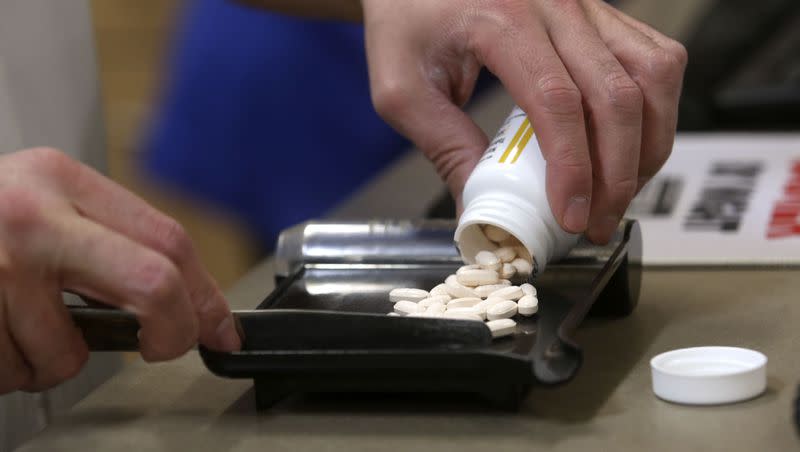Opinion: This plan to cut drug prices could result in lost jobs and fewer medicines. Here’s why

Utah’s life sciences industry has been the fastest growing in the nation for the past decade and a key sector of the state’s economy. To keep this innovation engine humming, we need to sound the alarm about proposals in Washington, D.C., that would hamper the development of new treatments for patients in our state and across the nation.
As Utahns, we are proud of the more than 1,800 life sciences and related companies that call our state home — companies that contribute $16 billion annually to our state’s gross domestic product and generate 150,000 jobs. These are high-quality, family sustaining jobs that importantly, advance health.
In addition to strengths in medical device manufacturing and diagnostics, our biotechnology and biopharmaceutical companies are increasingly driving drug discovery, with companies across the state pioneering new treatments and cures for some of our most challenging diseases, including cancer, Alzheimer’s disease, Lou Gehrig’s disease, multiple sclerosis and more.
Yet, some in the U.S. Senate and the White House are proposing to give the federal government an even bigger role in setting drug prices than what has already been authorized under the Inflation Reduction Act enacted last year.
These latest proposals would significantly increase and speed up the number of drugs subject to Medicare price controls under the Inflation Reduction Act, cutting by half the period from FDA approval to when price-setting kicks in. This is particularly concerning since the Inflation Reduction Act’s drug pricing provisions have yet to be fully implemented.
Studies have already shown that the Inflation Reduction Act, in its current form, will hurt drug research and development, or R&D. Now, a new study by Vital Transformation further examines the impact on patients, R&D investment and job loss if these more extensive proposals become law.
For example, the study estimates that the plan to allow Medicare to set prices for drugs five years after FDA approval will result in a loss of more than 1 million jobs in the U.S. and potentially a loss of as many as 23,000 direct and indirect life sciences jobs in Utah. Salt Lake City is ranked one of the top 25 cities in the country with the largest employment levels in drugs and pharmaceuticals, so this red flag should not be ignored.
As compelling as the economic impacts are, the blow to the R&D investment needed to bring new innovative drugs to patients is daunting. According to the same study, extending the reach of government-mandated drug pricing would result in 235 fewer medicines reaching patients, including in Utah, in the next 10 years. Impacts will be felt most heavily in many areas of unmet need, such as oncology, neurology, rare disease and infectious disease.
Drug companies make risky and costly investments to unlock treatments and cures for disease. Since 2000, the pharmaceutical sector has invested more than $1.1 trillion in the search for new life-transforming medicines, including funding to support critical partnerships with cutting-edge biotechnology startups. Even so, not all drug candidates pan out. Innovation is hard.
We all agree that Congress should explore measures that address the affordability and accessibility of drugs. But an in-depth review of price-setting proposals demonstrates that producing fewer medicines is not the right answer. Further, these policies fail to take into account the full scope of the real drivers of high out-of-pocket drug costs by including all players in the supply chain, such as pharmacy benefit managers and insurers.
We are fortunate that Utah’s leaders in the U.S. Senate and House reject these misguided drug pricing proposals that run counter to Utah’s patient-focused innovation. We hope other lawmakers will join them in identifying less draconian solutions.
Our goal must be to come together around comprehensive solutions that promote transparency and appropriately align incentives to lower drug costs while unleashing the power of science to produce life-changing medical breakthroughs.
Kelvyn Cullimore is president and CEO of BioUtah, a statewide trade association serving Utah’s life sciences community. BioUtah is comprised of manufacturers and developers of medical devices, diagnostics, pharmaceuticals and biotechnology products as well as academic and health care institutions.

